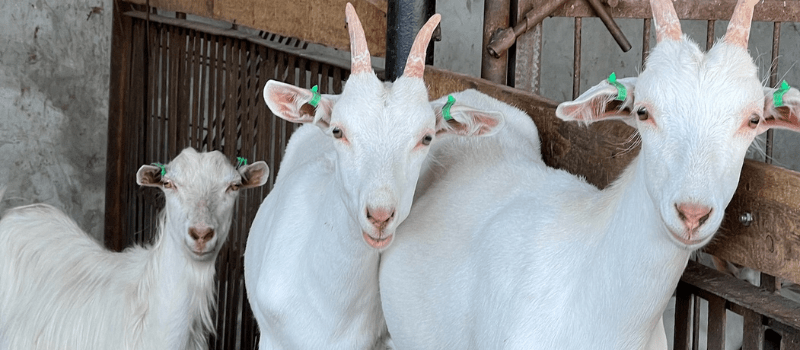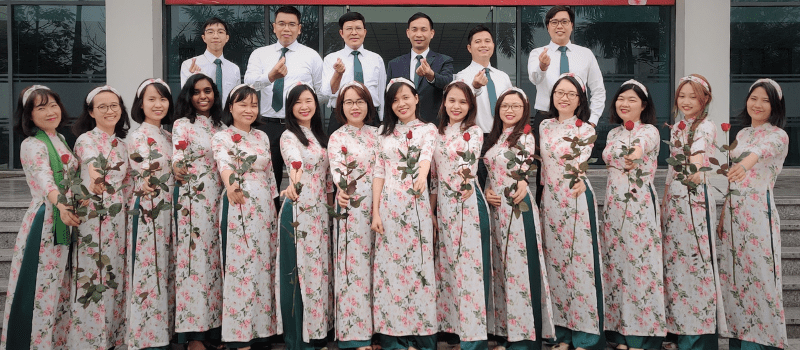This blog draws on field notes and insights from Ivan Zenar, Deputy Director of International Development and Humanitarian Programs at VWB, following a January 2025 visit to VWB’s Ukraine program.
Just north of Dnipro, in the rural town of Perechepyne, a quiet revolution is taking place—led by goats, cheese, and the determination of local families. What began as a targeted livelihood intervention has blossomed into a community-powered model for sustainable rural development. With funding from Mars and support from NGO Perspectives, a goat farming and cheese-making initiative is transforming livelihoods—proving that even in times of crisis, long-term prosperity can take root.
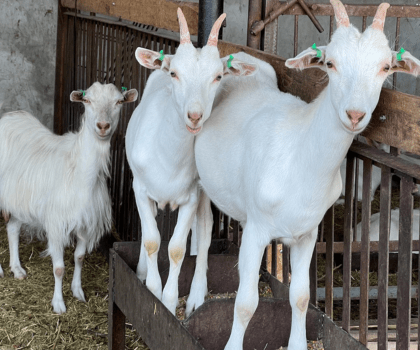 PHOTO: Goats distributed in Perechepyne in 2023.
PHOTO: Goats distributed in Perechepyne in 2023.
 PHOTO: Olena Samarska, Program Manager, NGO Perspectives.
PHOTO: Olena Samarska, Program Manager, NGO Perspectives.
 PHOTO: Training led by NGO Perspectives (May 2024).
PHOTO: Training led by NGO Perspectives (May 2024).
A Vision Rooted in Community
At the heart of this initiative lies a simple but powerful idea: give families the tools and training they need, and they’ll build their own path to resilience. In 2023–2024, VWB launched the goat farming initiative in Perechepyne with NGO Perspectives to help restore food security and income sources disrupted by conflict. The program provided 100 goats to 10 families, along with essential supplies, training, and ongoing mentorship.
Rather than limiting impact to a set number of recipients, the initiative was designed to grow. In a “pay-it-forward” model, families agreed to share baby goats with new participants, creating a ripple effect of benefits across the community. With a strong focus on empowering women and vulnerable households, the project emphasized long-term resilience through sustainable micro-livestock farming practices and mutual support.
Beyond Livestock: The Cheese Revolution
The success of the project hinges not just on livestock, but on knowledge. Participants received comprehensive, hands-on training in goat care and business development—from age determination and hoof trimming to nutrition, disease prevention, and cheesemaking. Best practices in animal welfare were also a priority, including housing, handling, health monitoring, reproduction, and transport. Sessions even covered the legal requirements for small farming businesses in Ukraine and introduced EU-compliant standards, preparing participants for future growth.
With this strong foundation and access to basic equipment like milking machines and quality feed, families quickly began producing and selling cheese at local fairs and through social media channels. Branding and marketing training further empowered them to differentiate their products and reach new customers.
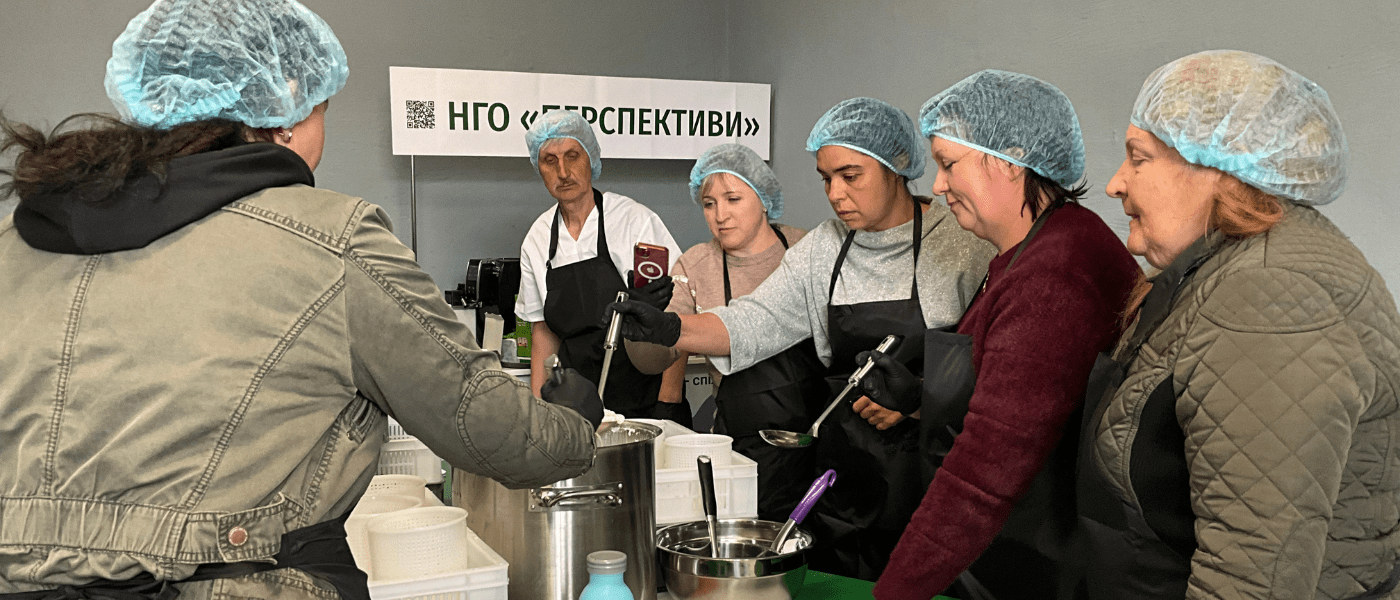 PHOTO: Participants in Perechepyne, Dnipro region, take part in a cheesemaking workshop in May 2024—part of the initiative’s hands-on training in value-added dairy production.
PHOTO: Participants in Perechepyne, Dnipro region, take part in a cheesemaking workshop in May 2024—part of the initiative’s hands-on training in value-added dairy production.
One standout example is a family whose goat cheese sales were so successful they’re now expanding their herd and building a second enclosure—a testament to both entrepreneurial spirit and the project’s market-driven design.
Building Resilience Beyond the Project Timeline
Although the formal project phase ended nearly a year ago, the program continues to flourish. NGO Perspectives remains active in the community, supporting new households while earlier participants take on mentorship roles. Many of these participants have since formed a cooperative to collectively produce and market their goat milk products, strengthening their position in local markets and increasing their visibility.
In many ways, the program’s most notable achievement is this very sustainability: it continues to grow without additional funding, driven by local initiative and a culture of shared responsibility. Knowledge and resources continue to circulate—baby goats, skills, and encouragement passed from one household to the next—cementing the project as a living model of community-led development.
Remaining Hurdles on the Path to Scale
While the foundation is strong, challenges remain. Livestock keepers need upgraded tools and infrastructure to scale production and ensure quality. Additional training is also needed in diversifying products—such as creating new cheese varieties or experimenting with dry milk—to meet evolving market demands.
Marketing and branding continue to be pain points. Without the resources or expertise to run effective digital campaigns, families struggle to break into larger, urban markets where premium dairy products could fetch better prices.
A Model Worth Replicating
The challenges are real—but it’s precisely in the face of these obstacles that the initiative’s most powerful attributes come into focus. Several key elements set this initiative apart as a compelling model for rural economic development:
- Local ownership of every step, from raising goats to branding cheese.
- Skills-based training tailored to both production and market engagement.
- Market orientation, including social media promotion and participation in fairs.
- A replication mindset that sees beneficiaries become mentors, and goat herds multiply across households.
It’s a model worth replicating because it equips people with the tools, knowledge, and confidence to keep moving forward.
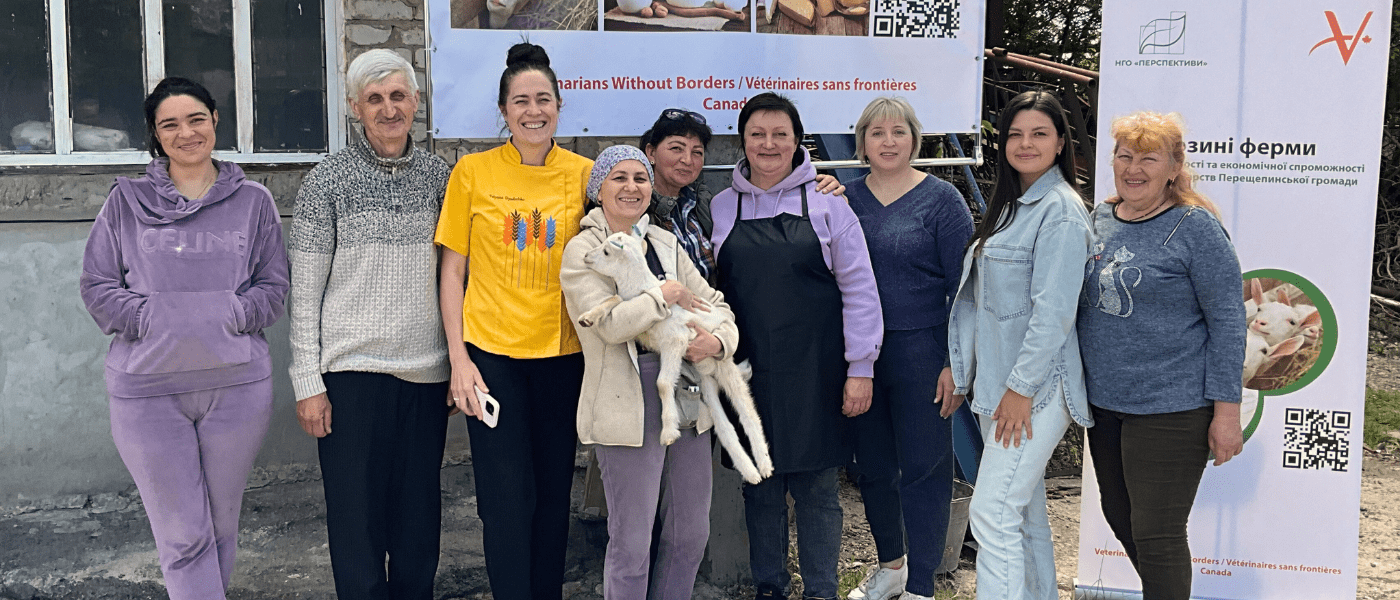
PHOTO: Community members and project staff gather in Perechepyne, where VWB and NGO Perspectives partnered to deliver a locally led goat farming and dairy initiative.
The Road Ahead
This initiative in Perechepyne is more than a livelihood project—it’s a living example of how community empowerment, strategic partnerships, and a clear market focus can drive enduring change. The support from Mars enabled the right conditions for success, but it’s the people of Perechepyne who are carrying it forward—one goat, one cheese wheel, one new family at a time.
Importantly, this work is unfolding against the backdrop of war. While humanitarian efforts continue to address urgent needs, programs like this goat farming and cheese initiative are equally vital. They help families not just survive, but reclaim a sense of normalcy, agency, and hope for the future. Supporting livelihoods in the midst of conflict is not a luxury—it’s a necessity. It allows communities to rebuild from within, even while the world around them remains uncertain.
Although the formal program has concluded, continued investment in infrastructure, training, and market access will be essential to building on its success. Already, it stands as a blueprint for what’s possible when development is done right—rooted in local realities, sustained by practical skills, and guided by the belief that even during crisis, people deserve the opportunity to thrive.
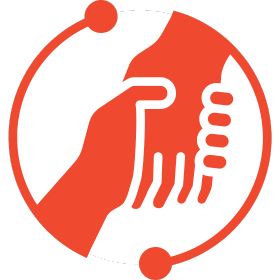 Join us in supporting sustainable livelihoods in crisis-affected communities. Programs like this one in Ukraine show how animal health and agricultural training can create lasting change. Donate, volunteer, or subscribe to help empower farmers, promote rural resilience, and strengthen the connection between animal, human, and environmental health.
Join us in supporting sustainable livelihoods in crisis-affected communities. Programs like this one in Ukraine show how animal health and agricultural training can create lasting change. Donate, volunteer, or subscribe to help empower farmers, promote rural resilience, and strengthen the connection between animal, human, and environmental health.

